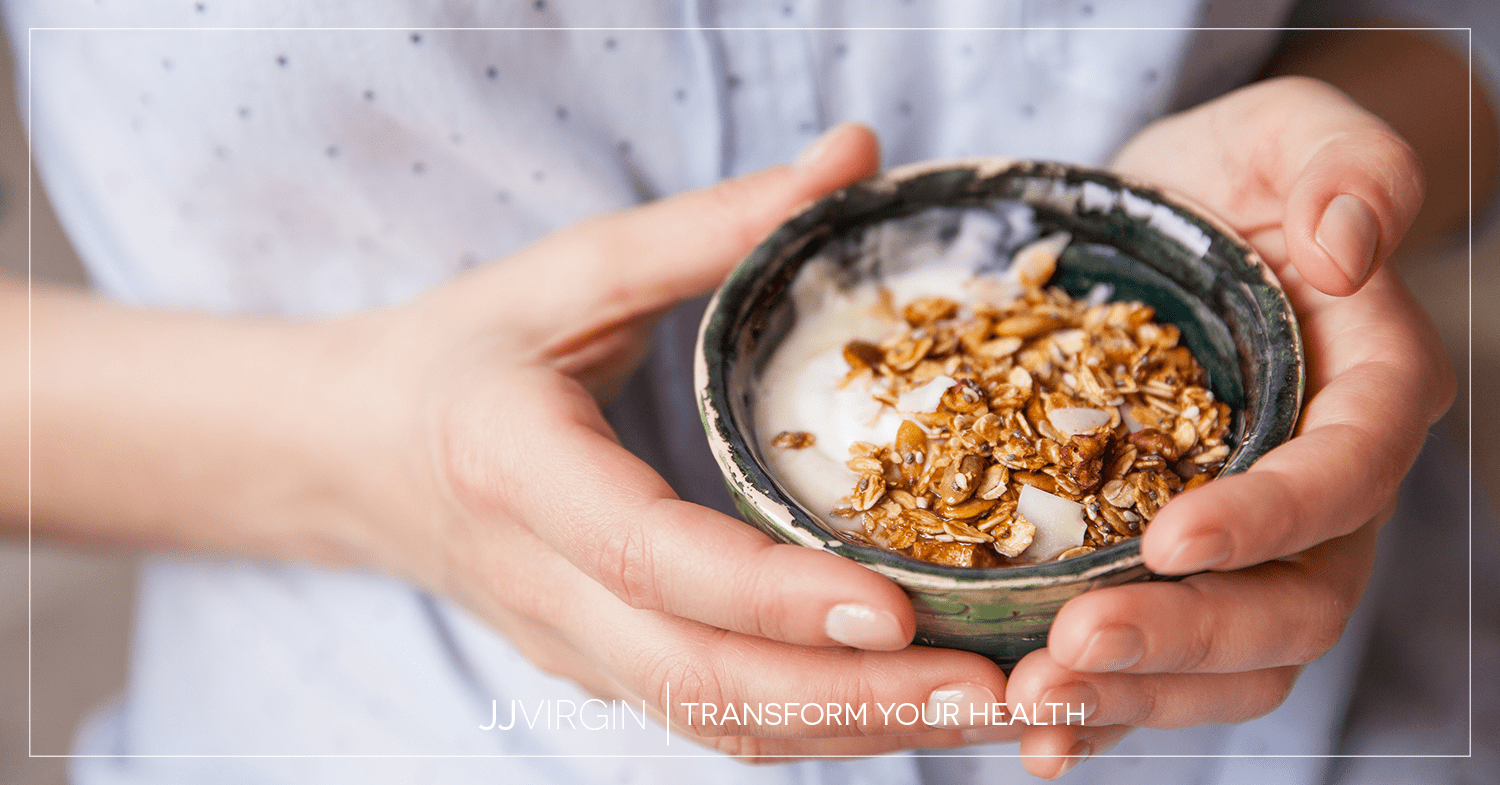Should you eliminate gluten from your diet? A recent CNN article has created quite a stir, claiming that a gluten-free diet isn’t healthy for everyone.1
I beg to differ!
I’ve spent years doing hands-on research, including working with world-renowned doctors and thousands of clients. I’m a triple-board certified health and nutrition expert with dozens of grad school courses under my belt, and I can tell you there’s nothing good about gluten.
While CNN alleges that a gluten-free diet comes with risks, the real danger is not having all the facts! Here’s a closer look at CNN’s main points and what you should know about each one…
They say: Not everyone benefits from going gluten-free.
The truth: Studies show that gluten consumption causes intestinal permeability in ALL individuals, regardless of whether or not they have celiac disease.2
Scientific research has proven that exposure to gluten can make your gut more permeable by weakening proteins called “tight junctions.” These junctions are responsible for holding your intestinal cells together, keeping partially digested food where it belongs.2
As these tight junctions begin to disassemble in a disease process called “leaky gut,” partly digested food and toxins can escape into your bloodstream. This causes your body to launch an immune response to what seems like dangerous invaders.
Over time, that activation of your immune system can lead to chronic inflammation and all of the problems that go along with it, including an increased risk of serious illness like type 2 diabetes and autoimmune disease.3,4
The big takeaway: avoid gluten and reduce your risk of major disease! That’s beneficial for everyone.
They say: If you eliminate gluten and then get tested for celiac disease, you run the risk of a false negative result.
The truth: In many cases, you can still find evidence of celiac-based harm to your gut and antibodies in your bloodstream after going gluten-free because the damage has been done over a period of years.
What’s more, the notion that you should keep harming yourself so you can figure out there’s something wrong is like not putting a cast on a broken arm so you can keep hurting yourself to prove it’s really broken. The very idea is absurd!
They say: If you don't know that you have celiac disease, you won't follow the diet as strictly as you may need to in order for the intestinal lining to completely heal.
The truth: I don’t know about you, but I don’t want to underestimate people’s ability to think for themselves!
If you’ve been in my community for a while, then you know all about the dangers of gluten and the discomfort it can cause. Those are reasons enough to steer clear of gluten!
Powered by knowledge, we have more self-control than CNN would like to think.
They say: If you unnecessarily cut out gluten, you may be risking nutrient deficiencies.
The truth: Eliminating gluten doesn’t put you at risk for nutrient deficiencies if you’re eating a healthy diet!
If you’re consuming a balanced diet with clean, lean protein, healthy fats, slow, low carbs, and plenty of non-starchy veggies, then nothing with gluten in it is going to contribute further to your dietary needs.
And if you’re relying on whole wheat bread for enough vitamins and fiber to make an impact on your health, you’re making yourself so sick and overweight that it doesn’t even bear mentioning!
They say: Gluten-free products may be just as caloric as their gluten-containing counterparts.
The truth: This is the only point that has merit! Filling your shopping cart with processed gluten-free foods is never a healthy option.
Eliminating gluten from your diet doesn’t give you a free pass to eat anything else you want!
Those gluten-free cookies and brownies still add up around your waistline and keep the cycle of inflammation going. The best choices are always gluten-free whole foods, as close to nature as possible.
They say: Cutting out gluten can prevent you from getting to the root of a problem.
The truth: Eliminating one problem food isn’t going to stop you from discovering another.
In The Virgin Diet, I walk you through exactly how to test foods one at a time to figure out which foods work for you and which foods don’t. Challenging foods in isolation is crucial to determining the source of your symptoms.
If you suspect that other foods in addition to gluten may be an issue, you can still go on to test those foods separately to create your long-term, customized eating plan. Dropping gluten can only help you feel better during this personal discovery process.
They say: Adhering to a gluten-free diet can be socially challenging.
The truth: You know what’s more socially challenging? Lupus!
When you eat gluten, you put yourself at high risk for leaky gut, which in turn, has been proven to cause autoimmune disease.
Which would you rather do – ask for gluten-free zoodles instead of pasta while you’re out with friends or eat from the bread basket and put your health at risk?
Conclusion: Not only is eating gluten-free advantageous for everyone, it’s essential to a healthy diet.
Sorry CNN, but you got it wrong this time!
Consuming gluten triggers increased intestinal permeability in all people. And that gluten-induced leaky gut creates inflammation, which can lead to a cascade of health issues, including autoimmune disease.
On the other hand, eating balanced gluten-free meals by the Virgin Diet or Sugar Impact Diet Plate ensures you’re getting the nutrients you need to keep your body thriving.
Bottom line: everyone is better off without gluten!
Thanks so much for reading this post! If you’re interested in finding out more about how to dial in your diet and health, please check out our online programs. They’re science-based and have already helped thousands of people feel better fast and lose the weight.
References:
1 https://www.cnn.com/2018/12/13/health/gluten-free-good-food-drayer/index.html
2 https://www.ncbi.nlm.nih.gov/pmc/articles/PMC4377866/






